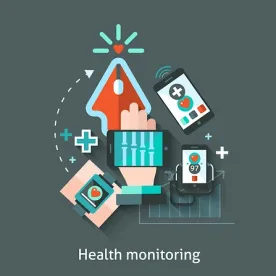This Week’s Dose
Welcome back to your weekly Check-Up. Congress remains in recess until after Labor Day, but the Administration issued several new rules and announcements.
Administration
CMS Issued Inpatient Prospective Payment System (IPPS) Final Rule. The fiscal year (FY) 2021 IPPS rule from the Centers for Medicare and Medicaid Services (CMS) includes updates to Medicare payment policies and payment rates for most acute care hospitals. Of particular note is the agency’s decision to move to a new market-based methodology for establishing relative weights for Medicare Severity Diagnosis Related Groups effective in FY 2024. Policies implemented in the final rule are effective October 1, 2020, unless otherwise noted. A summary of the final rule is available here.
CMS Issued Third COVID-19 Interim Final Rule with Comment (IFC). This IFC focuses on coronavirus (COVID-19) data reporting requirements and testing. As a Condition of Participation in Medicare and Medicaid, hospitals are now required to provide daily COVID-19 data to the Secretary of Health and Human Services (HHS). Elements include the number of confirmed or suspected COVID-19 positive patients, intensive care unit beds occupied, and availability of essential supplies such as ventilators and personal protective equipment. The IFC also revises Medicare’s testing coverage policy by allowing one non-physician ordered test for COVID-19 or flu testing; subsequent testing must be ordered by a physician or other health practitioner. Other policy changes in the IFC include non-enforcement of procedural volume requirements for certain national coverage decisions and updated COVID-19 reporting relief policies for certain quality programs.
CMS Issued Proposed Rule on Medicare Coverage of Innovative Technology and Definition of Medical Necessity. The proposed rule includes two regulatory changes intended to expedite and clarify Medicare coverage of innovative technology. First, CMS plans to codify the definition of “reasonable and necessary” (currently contained in guidance). Under the proposed rule, an item or service would meet the definition of reasonable and necessary if it is safe and effective, is not experimental or investigational, and is appropriate for Medicare patients. CMS would also take into account whether the item or service is covered by commercial insurance. Second, the rule creates a new Medicare Coverage of Innovative Technology (MCIT) pathway—a voluntary, opt-in pathway for Medicare coverage of medical devices (including some diagnostic tests) that are included in the Food and Drug Administration’s (FDA) Breakthrough Device Program. For eligible devices, coverage would begin on the day of FDA market authorization and would continue for up to four years. The comment period closes November 2, 2020. More information on the proposed changes is available here.
Departments Issued Memorandum of Understanding (MOU) on Rural Telehealth. The MOU from the Department of Agriculture (USDA), HHS and the Federal Communications Commission (FCC) establishes a Rural Telehealth Initiative to collaborate and share information to address health disparities, resolve service provider challenges, and promote broadband services and technology to rural areas. According to the press release, as part of the MOU, the agencies will establish an interagency Task Force, which will be comprised of representatives from HHS, FCC and USDA. The Task Force will meet regularly to consider future recommendations or guidelines for this effort and exchange agency expertise, scientific and technical information, data and publications. The MOU is in effect for five years unless terminated. The MOU is a new way the Administration is looking to show they are working to address access to telehealth with a focus on rural areas.
HHS Announced Provider Relief Funds for Assisted Living Facilities (ALFs). This latest announcement further expands those eligible to apply for funding through the current Phase 2 General Distribution of the Provider Relief Fund (PRF). ALFs are eligible to receive 2% of their annual revenue from patient care and have until September 13, 2020, to apply (HHS extended the deadline for all providers to apply for Phase 2 funding to September 13 last week, citing lagging applications). Previously, only ALFs that cared for Medicaid patients were eligible to apply for PRF funds through Phase 2 of the General Distribution. This change is noteworthy because as of today, the only commercial or private-pay-only providers who have access to the Phase 2 PRF funding are dentists and ALFs.
Quick Hits
-
Democratic leadership of the House Energy and Commerce Committee sent a letter urging FDA to resist political pressure in the COVID-19 vaccine development process.
-
HHS released a Rural Action Plan that includes a four-point strategy to transform rural healthcare delivery, including increasing access to telehealth, providing support to transition to value-based models and developing flexibilities for Medicare Advantage plans.
-
HHS released the performance criteria for nursing homes to qualify for the previously announced $2 billion in PRF performance-based payments.
-
CMS issued new requirements for the 20% IPPS add-on payment created by the Coronavirus Aide, Relief, and Economic Security (CARES) Act, specifying that after September 1, 2020, claims eligible for the 20% increase must also have a positive COVID-19 laboratory test documented in the patient’s medical record.
-
CMS announced that it will resume routine inspections of all Medicare and Medicaid certified providers and suppliers, which were suspended due to COVID-19.
-
The National Academies of Sciences, Engineering and Medicine released a proposed vaccine distribution plan that includes four criteria for determining equitable allocation: risk of acquiring infection, risk of severe morbidity and mortality, risk of negative societal impact and risk of transmitting disease to others.
-
The Government Accountability Office released a second report detailing the federal response to the pandemic.
Next Week's Diagnosis
The Senate returns from recess next week, and the House of Representatives returns the following week. Expect the COVID-19 response and government funding to dominate the agenda for the remainder of the year. The Senate Health, Education, Labor and Pensions Committee will hold a hearing on the Administration’s vaccine development efforts on September 9.





 />i
/>i

